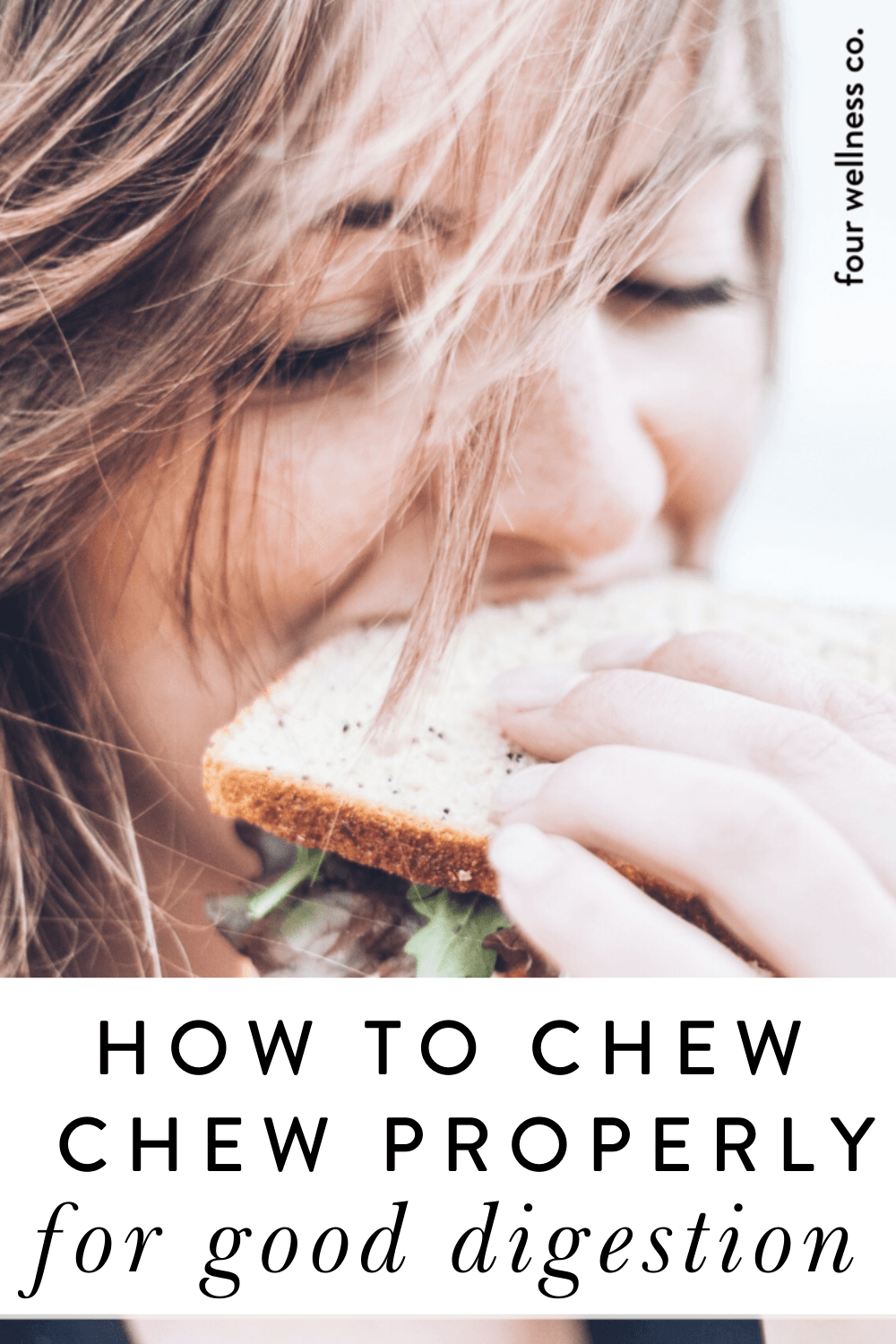How to Chew Properly for Good Digestion
Did you know that digestion begins in the mouth?
As you chew your food, digestive enzymes in your saliva start to break down the food, preparing it for absorption in your digestive tract and making it easier on your stomach and small intestine.
In fact, not chewing your food well enough can cause bloating and gas because undigested food particles make their way into your intestines, where they ferment and off-gas (aka, trap those gases in your intestines, leading to bloat and discomfort… and the eventual need to “pass it”).
Why it’s important to chew your food properly
Because chewing is the first part of digestion, it’s important to chew your food thoroughly to absorb all of the vitamins and minerals it contains. In addition to improved nutrient absorption, good digestion is important for many other health reasons.
Proper digestion (helped, in part, by proper chewing!):
decreases bloating, gas and upset stomachs
promotes regular and healthy elimination (poo)
increases energy
regulates blood sugar (which, in turn, plays a role in weight loss and healthy weight management, and reduces inflammation in the body)
How to chew properly for good digestion
Do you remember being taught how to chew properly? Probably not!
Even though it’s a seemingly simple and intuitive task, many of us are not quite doing it right. 😁
Here’s how to chew for optimum digestive health:
Chew each mouthful 30-50 times until the food becomes liquid
Swallow
Repeat
Tips for better chewing & digestion
A few tips for improving digestion with healthy chewing:
Put your utensils down between bites to help you slow down and chew each bite thoroughly.
Count your chews at first to make sure you’re getting enough; eventually you’ll be able to do that naturally without counting.
Try taking smaller bites that are easier to chew thoroughly.
Turn off the TV (or put down your phone) while eating—focusing on something else can take your attention away from chewing properly and lead to scarfing down food without the requisite number of chews.
While this may seem silly or excessive… Our digestive systems evolved on a diet of fibrous foods that required much more chewing than today’s processed food necessitates. So, we’ve developed some “lazy” chewing habits that cause digestive distress and limit our nutrient absorption.
But, especially when eating real, whole foods, it’s best to chew them thoroughly before sending them on to the rest of the digestive system. This aids digestion, nutrient absorption and overall health.
Pssst… are you eating the rainbow?
Get your recommended servings of fruits and veggies with our printable/fillable daily and weekly tracker. It’s part of our Wellness Library of healthy living guides + resources.
FOUR WELLNESS TIP
Practice properly chewing your food 30-50 times each bite & notice positive changes in your digestion!












